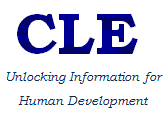| |
| Project Details |
| Start date of project |
1st May, 2010
(Previous Phases: 2003-2007; 2007-2010) |
|
Duration of project |
1.5 years |
|
Funding agency |
International Development Research Centre (IDRC), Canada |
|
Principle investigator |
Dr. Sarmad Hussain |
|
Project status (completed/in progress) |
In progress |
|
Collaborations |
-
Afghan Computer Science Association, Afghanistan
-
Center for Research on Bangla Language Processing, BRAC University, Bangladesh
-
D.Net, Bangladesh
-
Department of Information Technology, Bhutan
-
Institute of Technology, Cambodia
-
Ministry of Education, Youth, and Sports, Cambodia
-
National Information Communications Technology Development Authority (NIDA) , Cambodia
-
Institute of Science and Technology, China
-
Tibet Academy of Agricultural and Animal Husbandry Sciences, China
-
Tibet University, China
-
University of Indonesia, Indonesia
-
Agency for the Assessment and Application of Technology (BPPT), Indonesia
-
National Authority for Science and Technology, Indonesia
-
InfoCon Co. Ltd., Mongolia
-
Mongolian University of Science and Technology, Mongolia
-
National University of Mongolia, Mongolia
-
E-Network Research and Development, Nepal
-
Madan Puraskar Pustakalaya, Nepal
-
Language Technology Research Center, University of Colombo School of Computing, Sri Lanka
|
| Objectives |
The general objectives of the project are to:
-
examine effective means to develop digital literacy through the use of local
language computing and content.
-
explore development of sustainable human resource capacity for R&D in local
language computing as a means to raise current levels of technological
support for Asian languages.
-
advance policy for development and use of local language computing and content.
-
study and develop coherent instruments to gauge the effectiveness of multi-disciplinary
research concerning the adoption of local language technology by rural communities.
|
| Scope of work |
A wide variety of activities need to be orchestrated across various countries for different
languages and cultures to carry out the objectives of the second phase of the
PAN Localization project.
-
As content is an important ingredient to catalyze the use of technology.
The scope of Phase II of PAN Localization includes looking at challenges
in publishing online content in local languages.
-
Technology, even in local language, is not easily usable without adequate training.
Therefore, the project will look at effective strategies to develop and conduct technology
training to not only access content but also to generate it.
-
The project aims the development of local language computing technology.
The project will continue the necessary research to consolidate the earlier work on
standards to enable local language computing in Asian languages, looking at fonts,
collation, locale, keyboards, encodings, etc. The project will also look into
emerging standards for access, including keypads, Internationalized Domain Names (IDNs), etc.
-
The project also aims to work with policy-makers, scientists and end users and
develop and report on the partnerships developed across these groups.
|
| (Anticipated) Deliverables |
Language Resources e.g. Tagged and Parallel Corpora and Lexica, Open Source Software
Localization, Speech Recognition Systems, Text to Speech Systems, Linux Distributions,
Application for Word Segmentation, Morphological and Syntactic Parsers, Local Language
Mobile Interface, Local Language Content Creation, End User Training and Outreach
|
| Output license |
Software: GNU GENERAL PUBLIC LICENSE Version 3
Publications: Creative Commons
|
| Useful links |
www.panl10n.net |
|
|

